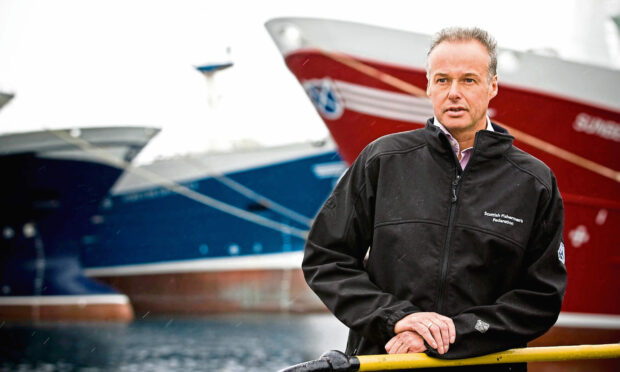Scottish pelagic fisheries are ahead of the game when it comes to the national effort to achieve net-zero carbon emissions targets, a new study has found.
Aberdeen University researcher Frances Sandison looked into the carbon footprint (CF) of Scottish mackerel – the country’s most valuable fish stock – and herring.
Her study found these species and the way they are caught have less of an impact on the environment, in terms of carbon emissions, compared to other seafood products.
Ms Sandison discovered that for every kilogram (2.2lb) of whole round fish caught by Scottish pelagic trawlers, carbon dioxide equivalent of 0.452kg is produced.
Fuel burned during fishing operations was the largest contributing factor, accounting for about 96% of the CF.
According to Ms Sandison, who already boasts a first degree in zoology and postgraduate degree in biodiversity, wildlife and ecosystem health, UK farmed salmon have a 7.2 times higher CF, while Norwegian-caught cod and haddock are responsible for 3.5 and 3.9 times more carbon emissions respectively.
Ms Sanderson’s latest studies, including her new report on the environmental impacts of pelagic fish caught by Scottish vessels, are focused on climate change and the food crisis, and supported and part-funded by NAFC Marine Centre UHI (University of the Highlands and Islands).
The Shetlander spends her time between Aberdeen University and the NAFC campus in Scalloway. Her research into Scottish pelagic fisheries and their CF was funded by Scottish Pelagic Sustainability Group (SPSG), Shetland Islands Council, Aberdeen University, UHI and the Shetland Fish Producers’ Organisation.
It follows a previous study she carried out which revealed the CF of the Shetland mackerel trawl fishery was much lower compared to land-based meat production, including chicken, beef and pork. Seafood production in general has a lower carbon footprint than land-based meat production.
According to Ms Sandison, the research findings confirm sustainably managed Scottish pelagic fish are a “climate smart” food source.
She added: “In Scotland we have access to a fantastically low-impact, highly nutritious, locally caught source of protein.
“Compared to other meat sources, the choice is clear for the environmentally conscious consumer – we should be eating more local pelagic fish.”
Boosting fuel efficiency through innovations in vessel design and fishing practices, and a transition to alternative fuel sources are part of the Scottish pelagic sector’s efforts to minimise carbon emissions.
SPSG chairman Ian Gatt said: “We congratulate Frances on the successful completion of her research.
“For the Scottish pelagic sector there is a lot at stake with climate change, given that mackerel and herring have an established global trade that helps ensure food security as an affordable and nutritious protein in many parts of the world.
“Scottish fishermen have invested heavily in modern vessels and fish handling systems, and processors in the latest equipment, to ensure a high-quality, low- carbon footprint product that can be delivered to market in the most efficient manner.
“As such, Scottish mackerel and herring production really does tick all the right boxes when it comes to sustainability, nutrition, and low carbon footprint.”
According to trade body Seafish, every job in the pelagic catching sector supports 5.6 in the wider UK economy. Every pelagic processing job supports an estimated 5.9 in the wider economy. Pelagic fishing and processing in the UK employ around 300 and 2,000 people respectively,
